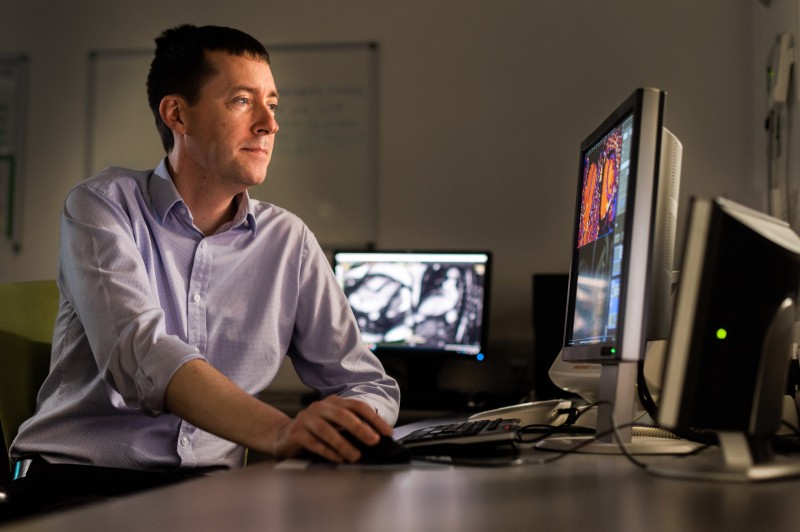By Sophie Arthur
April 8, 2020
Time to read: 3 minutes
We are extremely proud of all our colleagues who are helping in the national COVID-19 response. We want to celebrate them and their achievements by introducing you to them over the next few weeks and how they are helping to fight COVID-19 in this mini-series of ‘LMS Emergency Responses to COVID-19’. Today we want to introduce you to Dr Declan O’Regan.

What is your current role within the NHS in the COVID-19 response?
I have always kept a part-time clinical commitment during my research – but now I’m moving back to work for the NHS in radiology. COVID19 is predominantly a respiratory disease and chest imaging plays a critical part in its diagnosis and management. That has meant a steep learning curve over the last few weeks in recognising the signs and complications of this disease – and how to make best use of imaging to guide treatment. I’m also Lead Clinician for Imaging Research in the Trust and we’re collaborating on the NHSX National COVID19 Chest Imaging Database (NCCID) that will provide a valuable resource for future research and teaching.
How do you envision that your role might change?
We’re anticipating that our trainees will progressively return to the frontline so Consultants will be delivering the radiology service 24/7 across 3 sites – as well as supporting imaging at NHS Nightingale. Inevitably that means working outside our normal practice which includes rapidly re-skilling in trauma and paediatrics for me. Growing rates of staff self-isolation and sickness are also an increasing challenge. As the CMO has said – this is a marathon not a sprint – and the knock-on effects of the pandemic on the healthcare system as a whole will take us well into next year.
How are you balancing that with leading your research group?
For now, we’re managing using web conferencing and messaging platforms – but it’s going to get increasingly challenging to juggle both roles as the pandemic progresses. Keeping a sense of cohesion and mutual support is really important.
You can read more about Declan’s research in this article for World Heart Month.
Is there anything you have learn from leading your research group that you are applying now back with the NHS?
Learning new things quickly and being adaptable are always good skills to have! Redeployment is also pretty daunting so having supportive friends and colleagues has never been more important.
How do you envision AI and machine learning could be used to help with a coronavirus response?
We’ve already seen machine learning being developed for COVID19 diagnostics, monitoring and screening of drug candidates. However, I think its impact might be particularly useful in mitigating a second peak this winter by enabling a more sophisticated balance between graded public health interventions and regional healthcare resources.